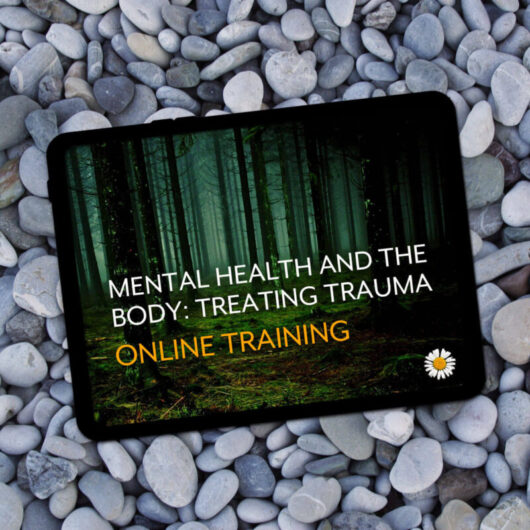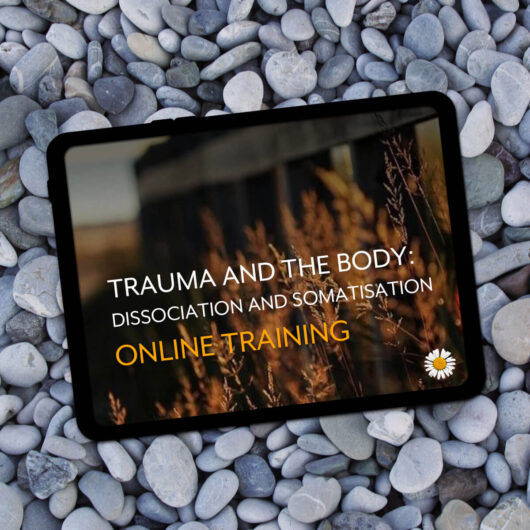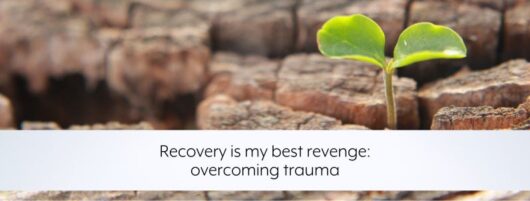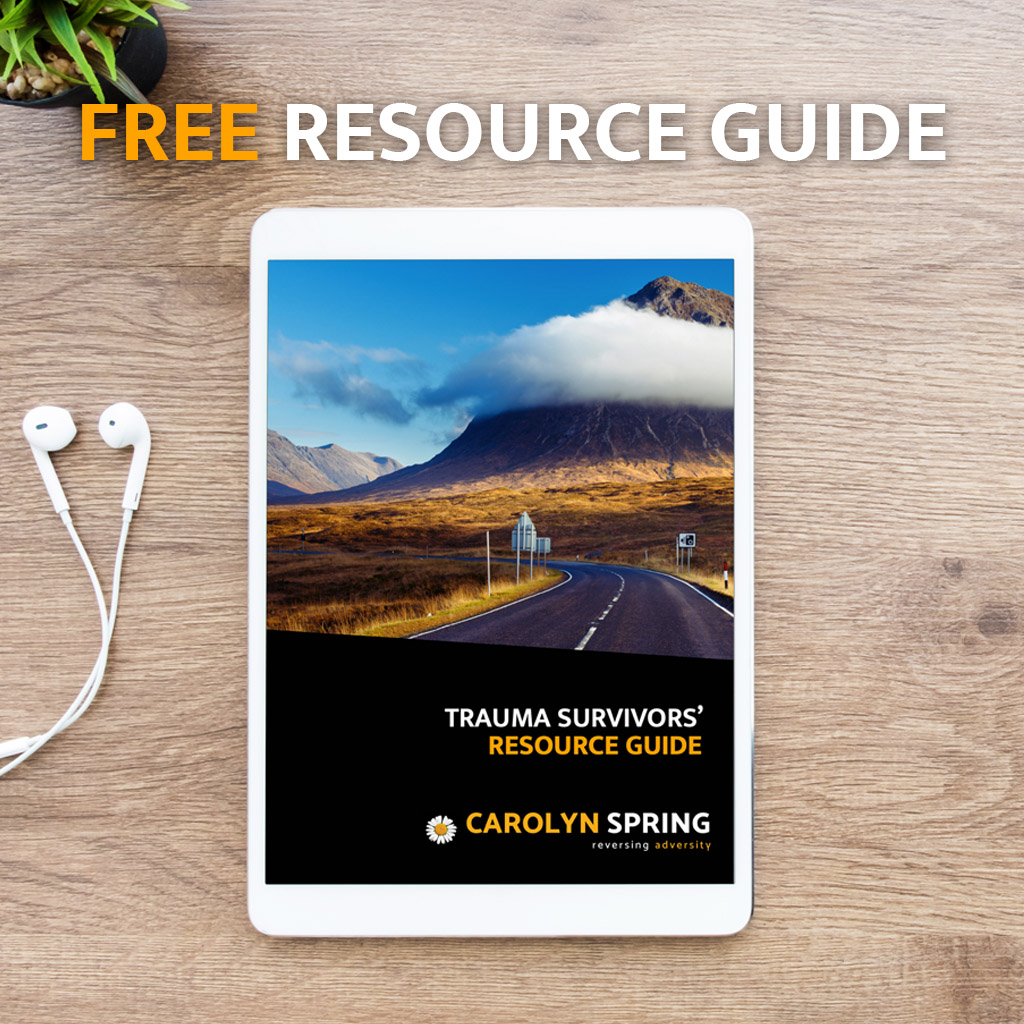
Recovery from trauma
Recovery from trauma is not easy. It’s a long-term process. But that doesn’t mean to say that it’s impossible. First and foremost, we need to understand how trauma has impacted the brain and body.

Recovery from trauma is not easy. It’s a long-term process. But that doesn’t mean to say that it’s impossible. First and foremost, we need to understand how trauma has impacted the brain and body.
Trauma impacts us. It’s supposed to. The impact of chronic, childhood trauma is absolutely devastating. It can affect every aspect of our life.
But we need to understand the function and purpose of traumatic symptoms. We’re not mad. Our brains have not malfunctioned. We are not faulty, and damaged, and beyond hope.
Instead, trauma affects us because it’s in our nature for it to. We react to trauma – what we call being traumatised, or post traumatic stress disorder or even a dissociative disorder – because it’s part of our evolutionary neurobiology: our brains and bodies have adapted to trauma to help us survive it if it happens again. The symptoms of trauma are supposed to help us.
And, yes, our body and brain’s response might mean that we survived – perhaps by the skin of our teeth – but when we’re impacted by trauma, we rarely thrive. That’s because trauma adapts us to a life prepared for danger or threat, not a life of peace and calm and joyful, fulfilling relationships.
Understanding that the symptoms of trauma are our best attempt to survive, however, can help us to realise that, however awful and overwhelming they are, they’re there for a reason – and that reason is NOT a fault in our brain. And that gives me hope for healing. If our brains have adapted to danger, we can also get them re-adapted to safety – a process that we could call ‘recovery’.
I believe in recovery from trauma – not as wishful thinking, or a form of toxic positivity, but because it makes sense. The brain and body are wired to heal – it’s what they are doing all the time. It’s how we survive and manage to live so long. So in recovering from trauma, we’re not actually asking the brain and body to do anything other than what is literally in their DNA to do. We just need to know how to help the process rather than hindering it.
Recovering from trauma isn’t easy; it’s not a single event; and in one sense it’s never over. I prefer instead to talk about it in terms of ‘heading north’ – a general direction of travel rather than a specific destination. I am more recovered from trauma than I used to be. And every day, even if I’m crawling on hands and knees, I’m heading north.
There are many ways to facilitate this recovery journey. A principal one is psychotherapy, but everything that promotes safety and relationship and a calm body and mind also help. To be traumatised means that we live in a constant state of threat, even when that threat isn’t real. To recover from trauma means that we recalibrate our brains and bodies to experiencing safety. What we eat, when we sleep, who our friends are, our engagement with therapy, our protection from abusers, the practice of mindfulness, noticing joy in our surroundings … all of it is part of it.
Browse my resources to explore some of these ideas and to learn how to head north towards a safer, calmer life of post-traumatic peace.
My ‘Mental Health and the Body: Treating Trauma‘ course may be particularly helpful.

Trauma is a supremely physical phenomenon, manifesting not just in our emotions and mental states, but also in our bodies. Trauma results in significant emotional distress and fear-based dysregulation, but also in long-term bodily inflammation and sleep disturbances, which in turn inhibits the processing of traumatic memory. And so it makes sense that our bodies also need to be involved in recovering from trauma: this course shows you how.
Start Learning
Trauma doesn’t just affect the mind and the emotions. It profoundly affects the brain and the body too. Often ‘the body remembers’ what the mind cannot, manifesting not just in long-term psychological difficulties but in physical ones too. Trauma is not something ‘all in the mind’, or something that we can just think or talk ourselves out of. On this course I look at how there is no real split between ‘body’ and ‘mind’ – and certainly not when it comes to trauma.
Start Learning
Trauma teaches us that we are helpless to act in the face of danger. But recovery from trauma involves learning to act, learning to take steps, learning to start to find and create the solutions. In this podcast, I talk about the symptoms of trauma and how they drive us towards a solution.
Start Listening
Recovering from trauma takes time. In this podcast, I look at how we often missed out on developmental stages during childhood, and how we have to learn what we were not in a position to learn as children - not least our ability to regulate our emotions, which isn’t a sign of character deficiency, but simply the loss of opportunity.
Start Listening
Sometimes life doesn’t go to plan. In this episode, I discuss the circumstances that led me back into therapy, the return of dissociative parts of the personality, and how I'm rising again after being knocked (and literally falling) down.
Start Listening
Recovery from trauma is a journey, an orientation, a direction, not a specific location. Just head north - where you're at is less important than which direction you're headed in. In this podcast, I discuss why we can feel that recovery is impossible, how recovery perhaps doesn't look as we imagine it to, and how society needs to help with 'public transport' to help us on our way.
Start Listening
Is recovery possible? I'd say it is … based not just on my own personal experience, but on the fact that it’s how our bodies and brains are designed by default. Often when people don’t recover, it’s a problem with the therapy or the ‘treatment’, rather than a problem with a person. In this thought-provoking podcast, I bring hope for healing.
Start Listening
Is recovery from trauma and abuse - resulting in dissociation and even a dissociative disorder - possible? That's the subject of this podcast where I talk about the vulnerability of hoping for good things, the difference between correlation and causation, and the difference between hoping for and planning for.
Start Listening
When we have suffered trauma and pain, our brains find it hard to experience joy. But we need to put ourselves in the right place to find joy, and we need to cultivate it. In this podcast I talk about a life-transforming trip from 2012 and how the big breakthroughs are built on the backs of daily small breakthroughs.
Start Listening
Recovery from trauma starts with acknowledging the existence of bears. It requires the involvement of a safe tribe. It necessitates the telling of our story and the healing of our wounds. And it requires action to keep us safe from further bear attacks.
Continue Reading
We don’t fail to heal from trauma quickly because there’s something wrong with us – because we’re stupid, because we enjoy being victims, because we’re mentally ill, because we’re lazy, because we’re weak. Trauma is difficult to heal from. It’s meant to be.
Continue Reading
If I said I could help you improve your life by 1% you might not be very interested. Especially if your life is filled with pain, suffering, dysfunction and struggle, you might think, “A 1% difference isn’t going to do any good! I need a 100% difference!” That’s how I thought for a long time.
Continue Reading
As trauma survivors we all know what it's like to be triggered by reminders of danger from the past. But do we know what our joy triggers are? And how does paying attention to what we enjoy help turn down our sensitivity to danger?
Continue Reading
‘Can we heal?’ she asked, quivering with the significance of what she was saying, as if her very life depended on it. ‘Can we really heal?’ I could well understood the agony in her eyes. I lived for many years overwhelmed by trauma, the symptoms of unhealed suffering. And if recovery is impossible, then why are we even trying?
Continue Reading
Recovery from trauma is hard work, but it is possible. However, there are number of things that inhibit that process, and this article looks at ten of them.
Continue Reading
Is recovery possible? That’s the question that everyone is asking, even when they’re not asking it. After a breakdown, perhaps after years in the mental health system, do we have to simply accept that we’re broken and that we’ll always be broken, or is it possible to live a life where we’re back in control again, where we’re living as we want to live, where life has purpose and meaning?
Continue Reading
It feels a long time ago now, the time when my abuse sat silent within me. It’s been over ten years. Back then, I didn’t understand any of the dynamics of abuse. The things that had happened, the things that had been done to me, the things I had been made to do – they sat silently within me as heavy weights on my soul, fetid non-reminders of my badness, this toxic mush that I thought was me.
Continue Reading
‘If I could just get over it, I would,’ I say, and I’m trying not to sound irritated or hurt but I’m not quite sure what emotion my face is displaying and my throat is tight and my fists are clenched and really I’d rather not be here, and neither am I convinced that I’m a good enough actor to hide all of this.
Continue ReadingGet a free 104-page Trauma Survivors’ Resource Guide when you join my mailing list.
Get a free 104-page Trauma Survivors’ Resource Guide when you join my mailing list.
